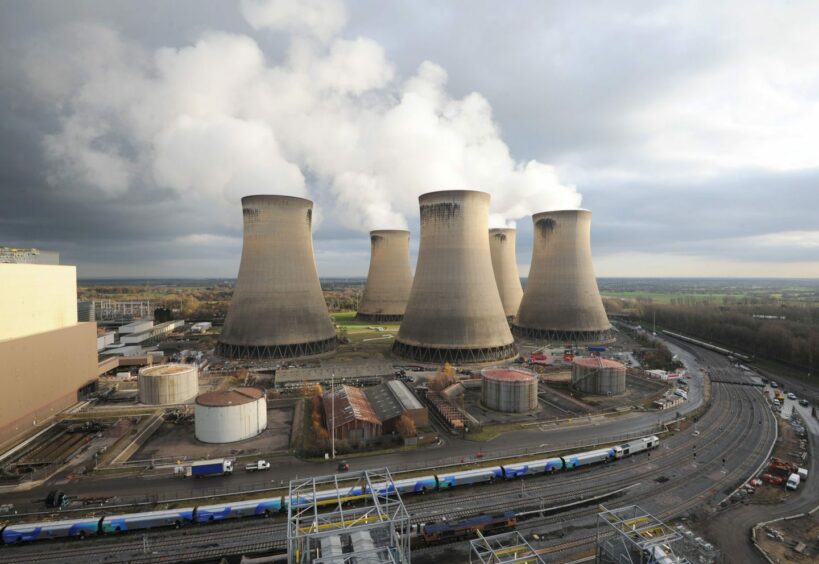
The UK is considering delaying support for some carbon capture projects until after this year as costs rise for the fledgling technology that’s critical to the country’s climate goals.
The government is still committed to backing a roll-out of projects that will trap CO2 from industrial sites and store it under the sea. But the first major stage could be smaller than previously planned, with some projects potentially delayed, according to people familiar with the matter who asked not to be identified because the details are private.
Chancellor Jeremy Hunt in 2023 committed as much as £20 billion ($25 billion) over the next two decades to fund the development of carbon capture and storage installations. But inflation and higher borrowing costs mean the projects are now expected to be billions of pounds more expensive, the people said.
Britain’s carbon capture plans are based on a regional cluster system, where groups of projects in industrial areas will share infrastructure to transport emissions to storage sites. The government is prioritizing two such clusters — the East Coast Cluster in the northeast of England and Hynet in the northwest — with eight projects in total.
The UK is working to finalize negotiations on the support mechanism so that businesses can make final investment decisions this year for the first round of major projects, meaning they could start operating by the end of the decade. That would put the country at the forefront of the business, following major investments in nations such as Norway, Denmark and the Netherlands.
The projects most likely to be delayed are those that are at less developed planning stages than others, the people said. Those sites could still receive backing at a later date, they said.
The government has strict criteria on affordability that need to be met before it will make an investment decision.
The UK is committed to carbon capture and the plan remains to take the first final investment decisions this year, a spokesperson for the Department for Energy Security and Net Zero said. Projects are at different levels of technical and commercial maturity, and it’s not appropriate to comment further on commercial talks, they said.
Recommended for you
